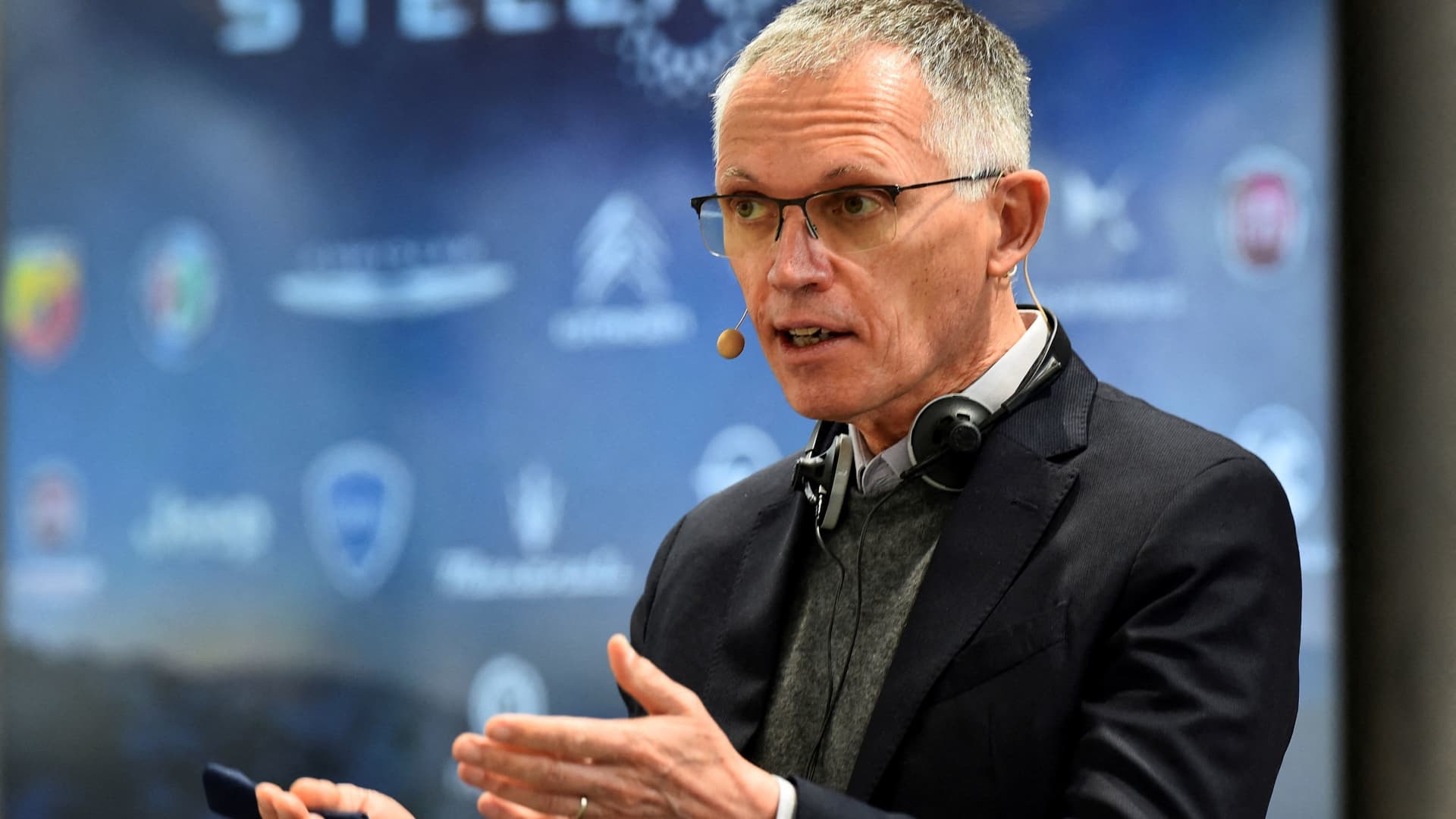Stellantis CEO Carlos Tavares said he expects shortages of the batteries and raw materials needed to make electric vehicles in the coming years, as the global automotive industry pivots to EVs to meet an expected increase in consumer demand and government regulations.
Tavares said he expects a shortage of EV batteries by 2024-2025, followed by a lack of raw materials for the vehicles that will slow availability and adoption of EVs by 2027-2028.
“The speed at which we are trying to move all together for the right reason, which is fixing the global warming issue, is so high that the supply chain and the production capacities have no time to adjust,” he told media Tuesday after the company announced a new $2.5 billion EV battery plant in Indiana.
Stellantis, the world’s fourth-largest carmaker, was formed by the merger of Fiat Chrysler and France-based Groupe PSA last year.
Tavares used the prospect of a shortage to urge policymakers globally to stop aggressively moving targets for EVs forward.
European regulators have been among the most aggressive in implementing new EV regulations, with those in the United Kingdom announcing plans to ban the sale of vehicles with traditional internal combustion engines by 2030, sooner than the previous target date of 2040. The Biden administration last year also announced a target for half of all vehicles in the U.S. to be EVs by the end of the decade.
“All the car companies now, at least the best ones, are now full speed ahead; in full execution mode, going as fast as they can,” Tavares said. “The only thing that really helps to deliver is stability. Stop playing with the rules. Leave the rules as they are and let people work properly.”
Tavares expects a bottleneck in batteries first, as more EV production plants come online. He then expects those facilities to create a shortage of raw materials for the vehicles. Such shortages have been a focus of Wall Street analysts when rating automakers and predicting their ability to sell EVs.
This isn’t the first time Tavares has warned of such a shortage, but it’s the most detailed.
“The point is, when we want to move too fast with a big magnitude and there is not enough feasibility studies, we may be bumping on this kind of stuff,” Tavares said. “You’ll see that the electrification path, which is a very ambitious one, in a time window that has been set by the administrations is going to bump on the supply side.”
Automakers globally have set sales expectations to transition certain brands to exclusively offering EVs by the end of this decade, if not sooner.
Stellantis is investing $35 billion in EVs and expects to achieve annual sales of 5 million electric vehicles globally by 2030. That would include all passenger car sales in Europe and 50% passenger car and light-duty truck sales in North America, in line with government targets.
